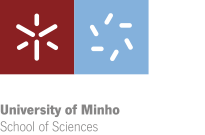Careers
The scientific training acquired by graduates in chemistry allows access to a wide range of careers in industry and services, including:
- Chemical, pharmaceutical, agrochemical, petrochemical, food, textile, paper, cork, cosmetics, polymers, inks, dyes and detergents.
- Companies/enterprises of treatment and recovery of waste.
- Laboratories of chemical analyses from industries and the state.
- Marketing companies of chemical products, raw materials and scientific or technical materials.
- Business consulting.
- Scientific research institutions.
The graduates in Chemistry are also prepared to integrate multidisciplinary technical teams in diverse environments, such as technological, industrial or educational.


